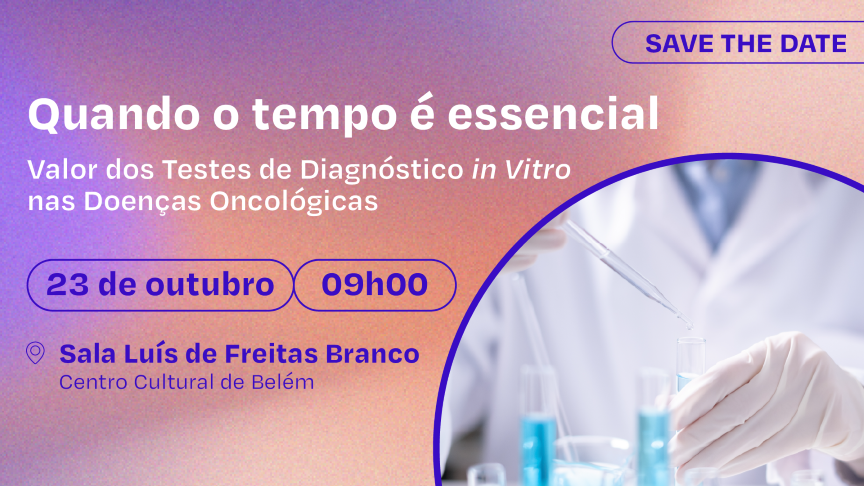From Diagnostics to Data Trust: How Health Data Forum Can Add Value Beyond the Test
By Paul Nunesdea, PhD, CPF | Firestarter, Data First, AI Later

Last week, APIFARMA held its annual conference on the theme "When Time Is Essential—The Value of In Vitro Diagnostic Tests in Oncology."
The message was clear: timely diagnosis saves lives. Yet as I listened to the agenda and reviewed the materials, another reflection emerged — one that sits at the core of the Health Data Forum mission.
If time is essential in diagnosis, then trust is essential in data.
From Test Results to Trusted Data
In vitro diagnostics (IVD) — blood tests, biomarkers, molecular assays — generate enormous volumes of clinical data every day. These data, however, often remain locked within laboratory systems, disconnected from the wider digital ecosystem that could transform them into actionable insights.
At the Health Data Forum, we believe that the future of diagnostics is not just in precision, but in connection — connection between datasets, between systems, and ultimately between people and evidence.
Diagnostics are no longer the end of a process. They are the beginning of a data journey that can enable real-world evidence, improve predictive models, and guide more equitable and personalized healthcare.
Where the Conversation Stops — and Where It Should Begin
The APIFARMA event rightly celebrated the contribution of diagnostic innovation to oncology.
Yet the discussion remained confined to clinical value — how tests improve treatment decisions, shorten waiting times, and increase survival rates.
Missing was the next logical question:
How can the data generated by those tests be trusted, shared, and reused responsibly to accelerate learning across the health system?
This is where Health Data Forum can make a tangible difference.
Our Distinct Contribution: "Data First, AI Later"
Through the Data First, AI Later movement, we have consistently advocated that data integrity, interoperability, and governance must come before analytics or AI.
Applied to diagnostics, this means:
-
Designing data at the source — ensuring lab data are standardized, interoperable (FHIR, LOINC, OMOP), and ready for ethical reuse.
-
Building real-world evidence pipelines — linking IVD data to outcomes, creating feedback loops that demonstrate value for payers and policymakers.
-
Creating trust frameworks — combining consent models, federated learning, and transparent governance to make secondary use both safe and meaningful.
Through our summits, think tanks, and roundtables, HDF can act as the neutral convening layer — connecting APIFARMA, diagnostic manufacturers, hospitals, and public agencies in a shared space for dialogue and co-creation.
Towards a Diagnostics Data Charter
One concrete next step could be a "Diagnostics Data Charter" — a collaborative initiative led by HDF to define principles for trustworthy secondary use of diagnostic data.
Such a charter could bring together:
-
Industry leaders (Roche Diagnostics, Siemens Healthineers, Abbott)
-
Regulatory and policy institutions (INFARMED, DGS, MedTech Europe)
-
Academic and clinical researchers (SAIL Databank, i-HD, SPMS)
-
Patient advocates and oncology associations
Together, they could set standards for data quality, interoperability, and transparency in the diagnostic value chain — turning test results into health intelligence.
The Opportunity Ahead
The real value of diagnostics will no longer be measured only by the accuracy of a test, but by the trustworthiness of the data it generates.
That is where the Health Data Forum can lead — by turning fragmented results into a foundation for ethical innovation.
The next frontier for diagnostics is not more testing.
It's more learning — powered by better, trusted data.
Paul Nunesdea, PhD, CPF
Founder, Health Data Forum
Firestarter, Data First, AI Later Movement
🌐 www.healthdataforum.org | www.architectingcollaboration.com